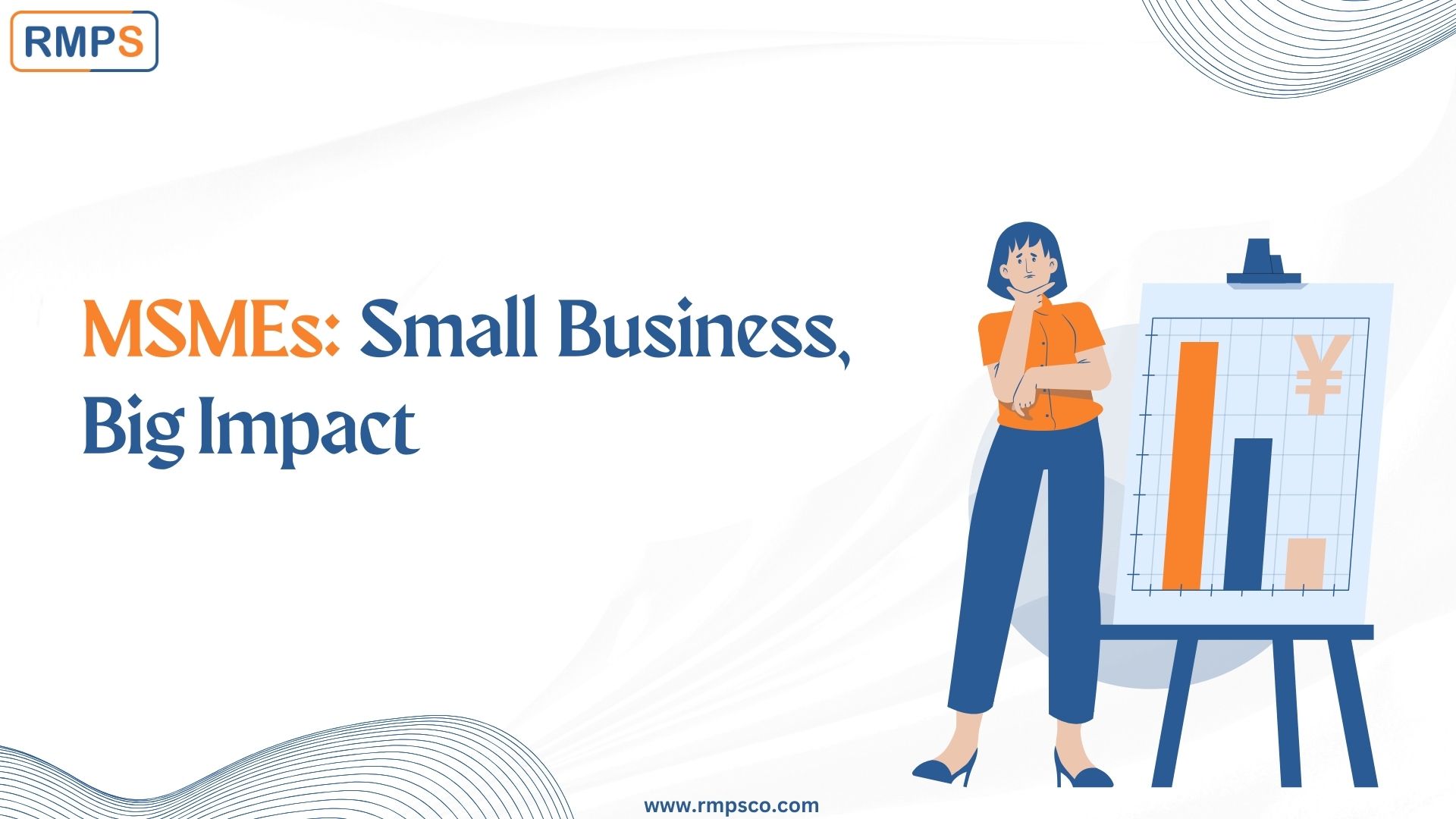
Small and Medium Enterprises (SMEs), often referred to as MSMEs (Micro, Small, and Medium Enterprises), play a pivotal role in driving economic growth and fostering innovation globally. These enterprises are the backbone of many economies, contributing significantly to employment generation, GDP growth, and industrial output. In this blog, we explore the profound impact of MSMEs on the economy and why they deserve recognition and support.
Why MSMEs Matter?
MSMEs represent a diverse range of businesses, from local artisans and service providers to high-tech startups and manufacturing units. Despite their size, these enterprises collectively account for a substantial portion of economic activity in both developed and developing countries. Here’s why they are so crucial:
- Employment Generation: MSMEs are major employers, providing jobs to a significant percentage of the population, especially in rural and semi-urban areas. They contribute to reducing unemployment and underemployment by offering opportunities across various skill levels.
- Contribution to GDP: Collectively, MSMEs make a substantial contribution to the Gross Domestic Product (GDP) of a country. Their combined output and value addition contribute significantly to economic growth.
- Innovation Hubs: Many businesses are hotbeds of innovation, pioneering new products, services, and business models. Their agility and ability to respond quickly to market demands often lead to groundbreaking innovations.
- Regional Development: MSMEs play a crucial role in balanced regional development by promoting industrialization in rural and backward areas. They help in reducing regional disparities by spreading economic activities beyond urban centers.
- Export Promotion: Small businesses often engage in export activities, contributing to foreign exchange earnings and enhancing the country’s export competitiveness. They diversify export baskets and increase market reach globally.
Challenges Faced by MSMEs
Despite their significant contributions, MSMEs face several challenges that hinder their growth and sustainability:
- Access to Finance: Limited access to formal credit is a major hurdle for MSMEs, restricting their capacity for expansion and investment in technology.
- Technological Adoption: Many businesses lag in adopting modern technologies and processes, which affects their competitiveness in the global market.
- Policy Support: Inconsistent regulatory frameworks and lack of supportive policies often create barriers for MSMEs to thrive and expand.
- Skill Development: The skill gap among the workforce poses challenges for MSMEs, impacting productivity and quality standards.
Government Initiatives and Support
Governments worldwide recognize the importance of MSMEs and have implemented various initiatives to support their growth. These include:
- Financial Incentives: Providing subsidies, tax incentives, and easier access to credit to promote investment and expansion.
- Skill Development Programs: Offering training and skill enhancement programs to improve productivity and competitiveness.
- Technology Upgradation: Facilitating access to technology and promoting innovation through research and development grants and schemes.
- Market Access: Supporting MSMEs in accessing domestic and international markets through trade fairs, exhibitions, and export promotion activities.
Conclusion
MSMEs are not just small businesses; they are engines of economic growth, innovation, and social development. Recognizing their pivotal role and addressing their challenges is crucial for building resilient economies and achieving sustainable development goals. As we move forward, supporting and nurturing MSMEs will continue to be a cornerstone of economic policy and development strategies worldwide.
LinkedIn Link : RMPS Profile
This article is only a knowledge-sharing initiative and is based on the Relevant Provisions as applicable and as per the information existing at the time of the preparation. In no event, RMPS & Co. or the Author or any other persons be liable for any direct and indirect result from this Article or any inadvertent omission of the provisions, update, etc if any.
Published on: June 29, 2024
